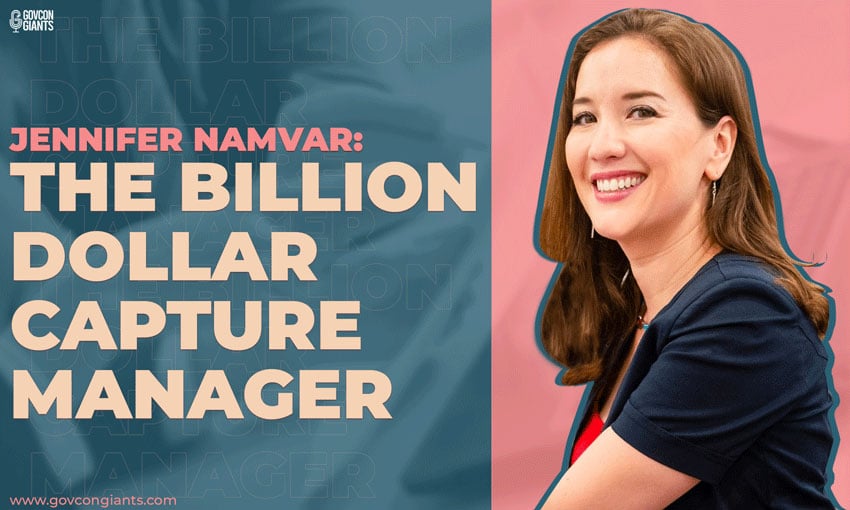Public Law 95-507 requires contractors (other than small business concerns) receiving a Federal contract exceeding $700,000 ($1,500,000 for construction), which offers subcontracting possibilities, to establish subcontracting opportunities directory plans and goals that provide maximum contracting opportunities for Small Businesses, Small Disadvantaged Businesses, Women-Owned Small Businesses, HUBZone Small Businesses, Veteran-Owned Small Businesses and Service-Disabled Veteran-Owned Small Businesses. Government-wide goals have been established as five percent for small disadvantaged businesses, five percent for women-owned small businesses, three percent for HUBZone certified small businesses, three percent for veteran-owned small businesses and three percent for service-disabled veteran-owned small businesses; these goals pertain to the agency’s total value of all prime contract and subcontract awards for each fiscal year.
A subcontracting plan is required of large business prime contractors with contracts meeting the thresholds, provides for the establishment of goals. Subcontracting plans also contain other provisions to ensure that the potential capabilities of a small business, small disadvantaged business, women-owned small business, HUBZone small business, veteran-owned small business and service-disabled veteran-owned small business concerns are fully considered for use. The plan may apply to a specific contract requirement or the entire production of a commercial product. In establishing subcontracting goals, the contractor may include all purchases that contribute to the performance of the contract, including a proportionate share of the product or service costs which are normally allocated as indirect costs. A company official is appointed to administer the plan.

 THE USDA MARKETPLACE
THE USDA MARKETPLACE
The contracting function at USDA is highly decentralized; there are 10 major contracting agencies and more than 200 field procurement offices. Most large procurements requiring a subcontracting plan take place at the headquarters levels or at major designated procurement centers.
Approximately 50 percent of USDA’s procurement budget is spent purchasing food commodities in support of various domestic and export feeding programs. It is not surprising, therefore, that the largest percentage of the subcontracting activity is carried out by food commodity contractors. This trend is slowly changing as more and more large contracts are awarded in the technical and administrative support areas.
USDA establishes goals for prime contracting and subcontracting dollars to be awarded. Prime contractors are encouraged to seek innovative ways to increase the participation of small business concerns in USDA procurements. To the extent feasible, major negotiated acquisitions will contain evaluation criteria provisions which take into consideration the prime contractor’s efforts and the extent of subcontracting with small business concerns. OSDBU is actively involved in the review of subcontracting plans.
To obtain more information on a specific contractor or to inquire about additional subcontracting opportunities, please contact the prime vendor’s Small Business Liaison Officer or the USDA point of contact listed. The USDA point of contact listed has been designated to carry out the programs at the operational level and their name and telephone number is listed at the end of each section. You may also contact the USDA Subcontracting Program Manager, Dianna Price at [email protected].
Agricultural Marketing Service (AMS)
Commodity Procurement Program
Fruit and Vegetables
USDA’s Agricultural Marketing Service (AMS) purchases a variety of domestically produced and processed commodity food products, through a competitive process among approved vendors. These purchases made by the AMS Commodity Procurement Program (CP) support American agriculture by encouraging the consumption of domestic foods. AMS-CP manages the ,Web-Based Supply Chain Management, the fully integrated, web-based ordering and procurement system used for the purchase of USDA Foods.
AMS services for the U.S. produce industry help buyers and sellers market their perishable products in the most efficient manner possible through distribution channels. We partner with State agencies for the benefit of nationwide growers, shippers, brokers, receivers, processors and the foodservice industry.
The wholesome, high quality products, collectively called USDA Foods, are delivered to schools, food banks, and households in communities across the country and are a vital component of our nation’s food safety net.




Agricultural Marketing Service (AMS)
Commodity Procurement Program
Livestock and Poultry
The AMS Livestock & Poultry Program (L&P) carries out a variety of programs in service of the livestock, poultry, meat, fish, feedstuffs, and related industries. Key programs include commodity grading, auditing, market news reporting, research and promotion oversight, and activities in support of Federal food and nutrition assistance programs including the National School Lunch Program.
The agency aims to help U.S. farmers gain greater participation in domestic and overseas agricultural markets, while ensuring fair trade practices. Additional functions include administering research and promotion programs, purchasing commodities for federal food programs, and administering standards for organic agricultural products.





Agricultural Marketing Service (AMS)
Commodity Procurement Program
Dairy, Grain, and Oilseed
We connect producers and users of grains and oilseeds around the globe through origination, trading, processing, and distribution, as well as offering a range of farmer services and risk management solutions.
We operate on an integrated global basis to source, store, trade, process and distribute grains and oilseeds including wheat, corn, oilseeds, barley and sorghum, as well as vegetable oils and meals. We have a broad global presence in grain origination, shipping and processing and we have developed significant expertise in handling identity preserved and differentiated products.
Our supply chain efficiency combined with origin and logistical flexibility enables us to deliver significant value to our customers around the world.



Andrea Lang
Agricultural Marketing Service (AMS)
Commodity Procurement Program
Small Business Specialist
Telephone: (202) 720-4237
Email: [email protected]
Agricultural Marketing Service (AMS)
Commodity Procurement Program
International Commodity Procurement
The Commodity Procurement Program of the Agricultural Marketing Service issues invitations to the public to purchase commodities and related durable goods.
The goal is to provide Government surveillance of the contractor’s/subcontractor’s quality control system, to verify the system’s effectiveness, and to ascertain the contractor’s ability to deliver product meeting contract requirements.


Linda Steigerwald
Agricultural Marketing Service (AMS)
International Programs
Small Business Specialist
Telephone: (816) 926-6168
Email: [email protected]
AGRICULTURAL RESEARCH SERVICE (ARS)
The Agricultural Research Service (ARS) is the U.S.Department of Agriculture’s chief scientific in-house research agency. Their main job is finding solutions to agricultural problems that affect Americans every day from field to table.
ARS delivers scientific solutions to national and global agricultural challenges.
Their vision is to have and maintain the global leadership in agricultural discoveries through scientific excellence.
The Agricultural Research Institute conducts research aiming to create and transfer knowledge for the development of the primary sector and to solve problems at the farmer’s level. … Its research activity strengthens rural development and contributes to the adoption of a sustainable rural policy and innovation offer.


Saurabh Vasudeva
Agricultural Research Service (ARS)
Small Business Specialist
Telephone: (301) 504-4384
Email: [email protected]
Animal and Plant Health Inspection Service (APHIS)
The Animal and Plant Health Inspection Service is a multi-faceted Agency with a broad mission area that includes protecting and promoting U.S. agricultural health, regulating genetically engineered organisms, administering the Animal Welfare Act and carrying out wildlife damage management activities. These efforts support the overall mission of USDA, which is to protect and promote food, agriculture, natural resources and related issues.
To protect agricultural health, APHIS is on the job 24 hours a day, 7 days a week working to defend America’s animal and plant resources from agricultural pests and diseases. For example, if the Mediterranean fruit fly and Asian longhorned beetle, two major agricultural pests, were left unchecked, they would result in several billions of dollars in production and marketing losses annually. Similarly, if foot-and-mouth disease or highly pathogenic avian influenza were to become established in the United States, foreign trading partners could invoke trade restrictions and producers would suffer devastating losses.
In the event that a pest or disease of concern is detected, APHIS implements emergency protocols and partners with affected States to quickly manage or eradicate the outbreak. This aggressive approach has enabled APHIS to successfully prevent and respond to potential pest and disease threats to U.S. agriculture.
To promote the health of U.S. agriculture in the international trade arena, APHIS develops and advances science-based standards with trading partners to ensure America’s agricultural exports, worth more than $50 billion annually, are protected from unjustified restrictions.

Estela M. Diaz
Animal and Plant Health Inspection Service (APHIS)
Marketing and Regulatory Programs (MRP)
Small Business Coordinator
Telephone: (301) 851-2537
Email: [email protected]
Rural Development
Procurement Management Office
The USDA Rural Development Business Center is a centralized business hub focused on customer service and business administration. The primary responsibilities of the Business Center include supporting Rural Development’s mission-critical operations, streamlining key business functions and reducing costs through team-based and cross-functional approaches.
They are committed to helping improve the economy and quality of life in rural America. Through their programs, they help rural Americans in many ways. They offer loans, grants and loan guarantees to help create jobs and support economic development and essential services such as housing; health care; first responder services and equipment; and water, electric and communications infrastructure.
They promote economic development by supporting loans to businesses through banks, credit unions and community-managed lending pools. They offer technical assistance and information to help agricultural producers and cooperatives get started and improve the effectiveness of their operations. They provide technical assistance to help communities undertake community empowerment programs. They help rural residents buy or rent safe, affordable housing and make health and safety repairs to their homes.





Milbert (“MAC”) Crossland
Rural Development (RD)
Procurement Management Office
Small Business Officer
Telephone: (202) 692-0055
Email: [email protected]
Farm Production and Conservation (FPAC)
Acquisition Division
Farm Production and Conservation (FPAC) is the Department’s focal point for the nation’s farmers and ranchers and other stewards of private agricultural lands and non-industrial private forest lands. FPAC agencies implement programs designed to mitigate the significant risks of farming through crop insurance services, conservation programs and technical assistance, and commodity, lending, and disaster programs.

Sheryl Welch
Farm Production and Conservation (FPAC)
Acquisition Division
Small Business Specialist
Telephone: (816) 926-6109
Email: [email protected]
Departmental Administration
The effective way to strategically manage a research organization is to empower the people on the front line who work directly with investigators. Department Research Administrators are the key to building a successful research structure. It is critically important to assist them in developing the resources and knowledge needed to be successful.


Danielle C. Knipper
Departmental Administration (DA)
Procurement Analyst
Office of Contracting and Procurement
Telephone: (970) 295-5362
Email: [email protected]






 THE USDA MARKETPLACE
THE USDA MARKETPLACE




























